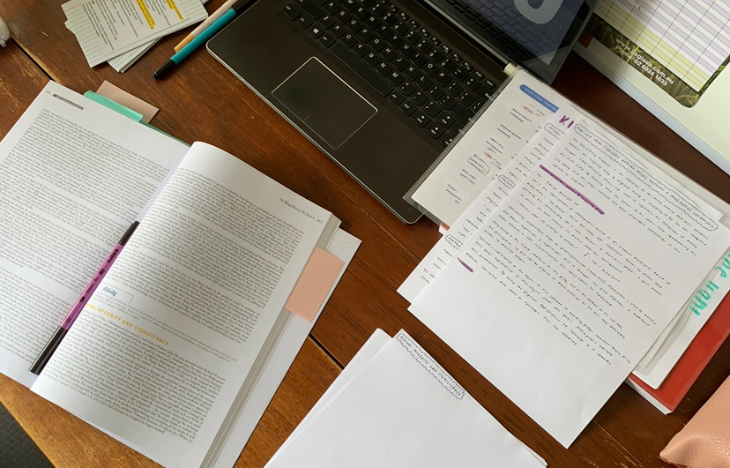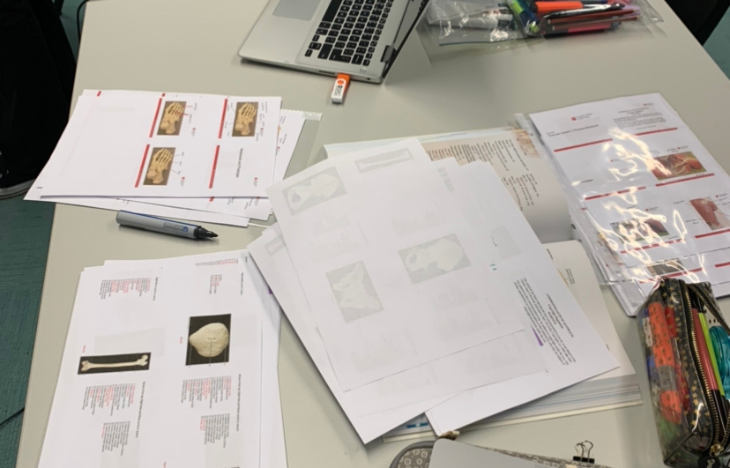This post is over three years old, the information may be outdated.
Written by Kate Armstrong
I have just finished my first session of university. EVER. That’s crazy to think about! In no particular order, here are 10 things that my first session of university taught me:
- Time management is key
Time management is so often underestimated, that people do not realise how effective it can be! Parkinson’s Law is the theory that “work expands so as to fill the time available for its completion.” For example, if you tell yourself that you have the ‘whole afternoon’ to write your essay that is due tomorrow, you are more likely to take the whole afternoon to write it. In contrast, if you tell yourself that you only have 3 hours, and you set a timer to go off in 3 hours, you are more likely to complete the essay in that time, AND get more things done in the rest of your afternoon.
- Don’t let things pile up

With so many things being online now, it is so easy to let tasks pile up for weeks and weeks, and then suddenly, it’s Week 6 and you still haven’t finished your notes from Week 1! Personally, I find it super easy to write my ‘to-do list’ but much more difficult to just get stuck in and complete it.
- Have a detailed planner
Having a planner has truly saved my life this year! Last year I trialled a few and found one that works the best for me and my schedule, so whether it be your Google calendar, a daily planner, or a good old-fashioned hand-written diary, make use of it. It helps to plan your days in advance.
- Save your money
A very common and somewhat accurate statement is that university students don’t have much money! This is a huge generalisation, but I think a more accurate statement would be that university students have never been taught how to budget and save. No matter how much or how little money you have coming in every week, put in place some simple budgeting and even a small percentage of savings (if possible) and you will find that it is much easier than you think!

- Put your phone away
This applies to both social and educational situations! If you’re with friends, make time to chat with them, connect with them and deepen those relationships, don’t stand there on your phone! The same process when you’re studying, you need to be 100% dedicated to the task in front of you. So whether that means leaving your phone in another room or locking it in a drawer, minimising the distractions that it brings will ensure maximal productivity!
- Independence comes
When I first arrived at university, I was overwhelmed by the independence that came with living away from home. For the first time in my life, I was responsible for managing my own time, budget, and workload. It took a few months for me to get used to, but it became more enjoyable the longer I persevered.
- It’s okay to ask for help
Independence is great, but we must realise that it is also more than okay to ask for help when you need it. Reaching out to a friend or lecturer for help makes all the difference. It doesn’t make you weak, it shows that you are willing to grow.

- Build networks
One of the best things about university is the diversity of the student body, there are students from all different backgrounds and cultures, with a wide range of experiences and perspectives. Networking is important both socially and professionally. Many lecturers and tutors know people in the industry and can help you find opportunities’ once you graduate.
- The subject outline is your best friend
The subject outline is potentially the most important document that the Subject Coordinator will give you. It is a critical resource that contains the learning outcomes and assessment expectations, which are super helpful when planning out your session!
- Go to class
Seems simple right? Maybe even obvious? But especially when classes become not compulsory, it is easy to just not show up. Find a group of friends/classmates that are willing to commit to coming every week and hold each other accountable. Something as simple as showing up to every class will make a huge difference to your understanding of the content, and eventually, your grades!










